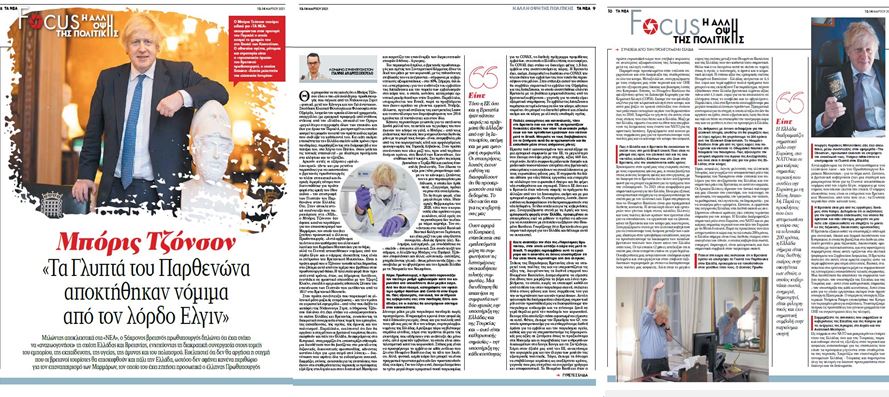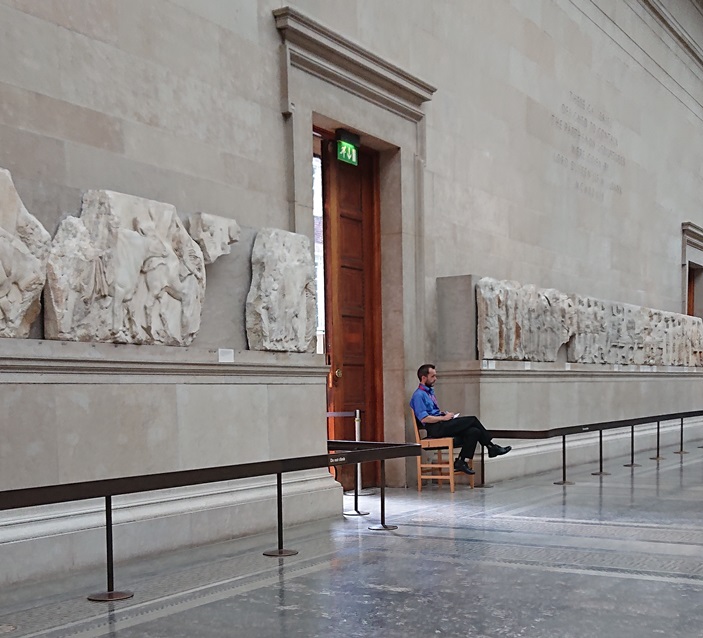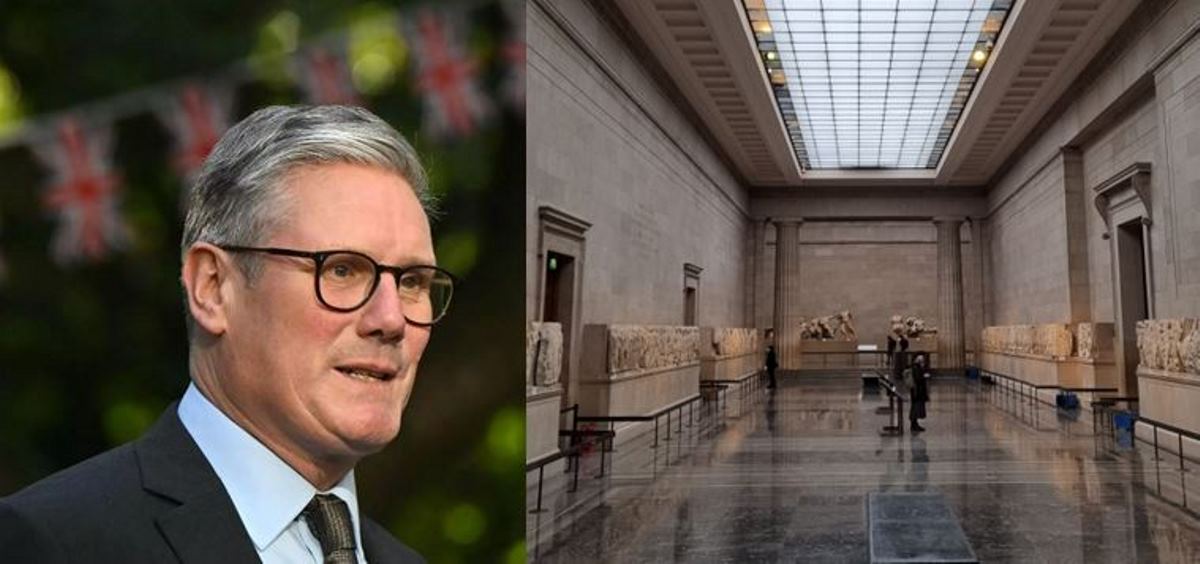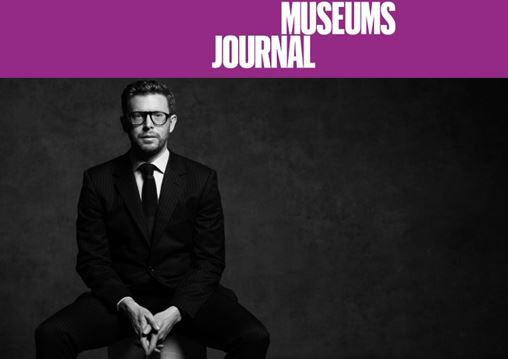12 March 2021
Yannis Andritsopoulos, London Correspondent for the Greek daily newspaper Ta Nea in an exclusive interview asked UK Prime Minister Johnson about the Parthenon Marbles.
Prime Minister Johnson was asked specificlly about Prime Minister Mitsotakis' plea to have the Parthenon Marbles back in Greece.
Sadly PM Johnson chose to answer the question by repeating that the UK governments standpoint is based on legal ownership. Yet the question remains, if the legality was uncontestable, why did the UK government not retain ownership and instead transfered it to the British Museum?
In today's exclusive interview with the Greek daily newspaper Ta Nea, when asked about the Parthenon Marbles, British PM Johnson said: “I understand the strong feelings of the Greek people – and indeed Prime Minister Mitsotakis – on the issue.But the UK Government has a firm longstanding position on the sculptures, which is that they were legally acquired by Lord Elgin under the appropriate laws of the time and have been legally owned by the British Museum’s Trustees since their acquisition.”
In this wide-ranging interview, Prime Minister Johnson also covered topics from post-Brexit Britain to ‘Global Britain’ serving UK citizens and defending UK values by extending the UK’s international influence.
He also said the UK: "remains committed to working alongside our partners in the region and the UN to find a just and sustainable solution to the Cyprus problem.” Adding that Britain is following developments in the region closely and "welcomes the resumption of Greece-Turkey talks" urging all all parties to prioritise dialogue and diplomacy.
"I am of course a keen scholar of Greek history, the decisive impact of Navarino on the success of the Greek War of Independence and Britain’s crucial role in it. The Ancient Greeks founded western civilisation and gave us science, culture, philosophy, comedy, tragedy, poetry, mathematics, literature, democracy – to name just a few. But modern Greece’s emergence on the international scene as an independent nation state has also had enormous significance for the world. Greece plays an important role in Europe, NATO and in a pivotal region connecting Europe to the Middle East.
Despite some of the challenges the country has faced over the past two hundred years, Greece today is a well-governed, prosperous, creative, peace-loving international partner in the family of nations and makes a crucial contribution to the world stage." Concluded Prime Minister Johnson.
And BCRPM would add: the halves from the Parthenon currently displayed the wrong way round in the British Museum's Room 18, were removed when Greece had no voice. As an independent nation, Greece has been asking politely for some time for the UK to find a way to reunite the sculptures in Athens, so that the surviving pieces may be viewed as close as possible to the Parthenon. The BCRPM sincerely hopes that the UK can begin talks to find a solution to this unecessary division of this peerless collection of sculptures from the Parthenon.
The interview by Yannis Andritsopoulos was published in the Greek daily newspaper Ta Nea (www.tanea.gr), today 12 March 2021. To read the interview in English, visit the linkhere.






Comments powered by CComment